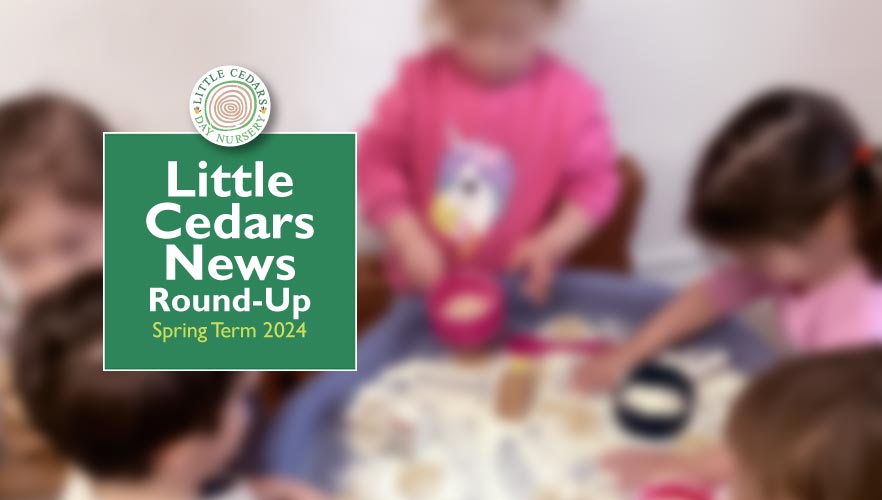
Today, we give you a glimpse into some of the themed activities and topics that children are getting involved in at Little Cedars Nursery this Spring term. They’re many and varied and give children insights into different subjects, elements of life that they may not yet be familiar with, different cultures, key dates, celebrations and traditions. Such insights will stand them in good stead educationally as well as socially —  and many of them are simply great fun too!
and many of them are simply great fun too!
One highlight from just this week, for example, was Pancake Day (a.k.a. Shrove Tuesday), which fell on 13th February this year. Children certainly enjoyed getting involved! The photo shows some of our nursery children getting involved in mixing ingredients. Later they could be seen rolling, kneading and shaping pancakes. The next day it was, of course, Valentine’s Day, giving children the chance to get creative and make or give cards if they so chose.
Learning Opportunities from the Spring Term Calendar
With this term running from early January until late March, there are many key dates and celebrations to draw children’s attention to. It’s a great way to broaden children’s horizons and help them learn about the wider world, society, different cultures and religions.
JANUARY
January saw many key dates arriving throughout the month. Examples included: • Martin Luther King Day on the 15th • Winnie the Pooh Day on the 18th • World Religion Day on the 21st • National Handwriting Day on the 23rd • Burns Night on the 25th • Australia Day on the 26th • the RSPB Big Garden Birdwatch from the 26th to the 28th • and National Storytelling Week, which began towards the end of the month and stretched into the start of February, which we’ll come to below.
These, along with additional key dates not shown, represent great learning opportunities for children at Little Cedars Nursery in Streatham.
FEBRUARY
The start of February continued with the remainder of National Storytelling Week followed by additional key dates including • Chinese New Year and the Lunar New Year on the 10th • Shrove Tuesday (a.k.a. Pancake Day) on the 13th • Valentine’s Day, Ash Wednesday and the start of Lent on the 14th • Random Acts of Kindness Day on the 17th • World Thinking Day on the 22nd • plus additional key dates not listed.
These are great opportunities for children to discover new facts, understand new concepts, learn about different cultures, get creative, and so on.
MARCH
March 2024 is also jam-packed with key dates that can present great learning and discovery opportunities for children. Examples include: • World Wildlife Day on the 3rd • World Book Day on the 7th (we’ll certainly be making the most of that at Little Cedars Nursery) • the festival of Maha Shivratri on the 8th • Mother’s Day on the 10th — a wonderful opportunity for our children to make something creative for their mums • the start of Ramadan also on the 10th • St. Patrick’s Day on the 17th • the Spring Equinox on the 20th (it’ll be lovely to say goodbye to Winter!) • World Poetry Day on the 21st • the Jewish holiday of Purim (23rd to the 24th) • the Hindu festival of Holi (24th to the 25th) • Palm Sunday on the 24th, the Easter dates of Good Friday (29th), Holy Saturday (30th), and Easter Sunday on the 31st.
The 31st is also when the clocks go forward and we start to enjoy lighter evenings again — fabulous! With that in mind, we’ll be adding some Spring-focused content to the site, relating to the early years, in the coming weeks.
As well as looking at celebrations and festivities from the calendar like those above, we also explore additional topics with the children during the Spring Term.
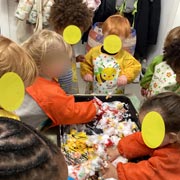 Earlier in the term, for example, our nursery children enjoyed an array of fun, sensory activities. Using brushes, they explored primary colours and mixing to make secondary colours using snow foam. As well as learning about colours, this activity also helped them practise hand and eye coordination, get in tune with their senses and develop the small muscles needed for fine motor control.
Earlier in the term, for example, our nursery children enjoyed an array of fun, sensory activities. Using brushes, they explored primary colours and mixing to make secondary colours using snow foam. As well as learning about colours, this activity also helped them practise hand and eye coordination, get in tune with their senses and develop the small muscles needed for fine motor control.
 Another recent activity that proved to be a hit with our nursery children was the insect/minibeast hunt. As you can see in the photograph, children gathered around a tuff tray, spotting and ticking off different insects that we’d hidden in the soil. While these particular insects were only man-made representations, children can also use our free Minibeasts Poster to find real ones out in the garden or countryside. Spending time around nature is hugely beneficial to children, as we previously reported, so follow the bold links if you’d like more information.
Another recent activity that proved to be a hit with our nursery children was the insect/minibeast hunt. As you can see in the photograph, children gathered around a tuff tray, spotting and ticking off different insects that we’d hidden in the soil. While these particular insects were only man-made representations, children can also use our free Minibeasts Poster to find real ones out in the garden or countryside. Spending time around nature is hugely beneficial to children, as we previously reported, so follow the bold links if you’d like more information.
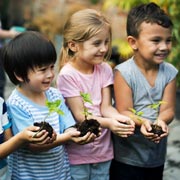 This term, with that in mind, there will be lots of planting in our garden. Children generally love this activity and it teaches them about nature, responsibility, caring for other living things and so much more.
This term, with that in mind, there will be lots of planting in our garden. Children generally love this activity and it teaches them about nature, responsibility, caring for other living things and so much more.
We’ll also explore the topic of people who help us with the children. This may include a visit from the police, a postman and perhaps a short trip on a public bus. All such things will open children’s eyes to some of the facets  of modern society and even the jobs that people do.
of modern society and even the jobs that people do.
Later in the Spring Term, we’ll explore the topic of baby animals and this is sure to delight the little ones! As with the planting activity, it should also nurture their caring side,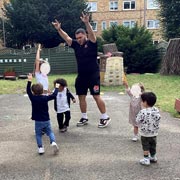 helping them understand the need to be gentle, responsible and empathetic towards other creatures.
helping them understand the need to be gentle, responsible and empathetic towards other creatures.
And don’t forget, we also have exciting sports sessions for children every Wednesday, through the external expertise of coach Mihai of Sports Play Motion. Sessions are filled with fun, ever-growing skills, teamwork and laughter. The children look forward to every session!
A 5-Star Nursery in Streatham
Our Streatham nursery is a homely, welcoming, five-star learning environment for under-fives

 If you’d like to explore the opportunity of sending your baby, toddler, or preschooler to Little Cedars Nursery in Streatham, please get in touch. We regularly attract 5-star ratings and reviews and are officially a ‘Good Provider’ of early years childcare and education, so you know your child will be in good hands. Please select an option below to get started:
If you’d like to explore the opportunity of sending your baby, toddler, or preschooler to Little Cedars Nursery in Streatham, please get in touch. We regularly attract 5-star ratings and reviews and are officially a ‘Good Provider’ of early years childcare and education, so you know your child will be in good hands. Please select an option below to get started:
Little Cedars is also near Streatham Hill, Streatham Park, Streatham Common, Furzedown, Tooting, Tooting Common, Tooting Bec, Tooting Broadway, Balham, Norbury and Colliers Wood, so may also suit families from those nearby locations.


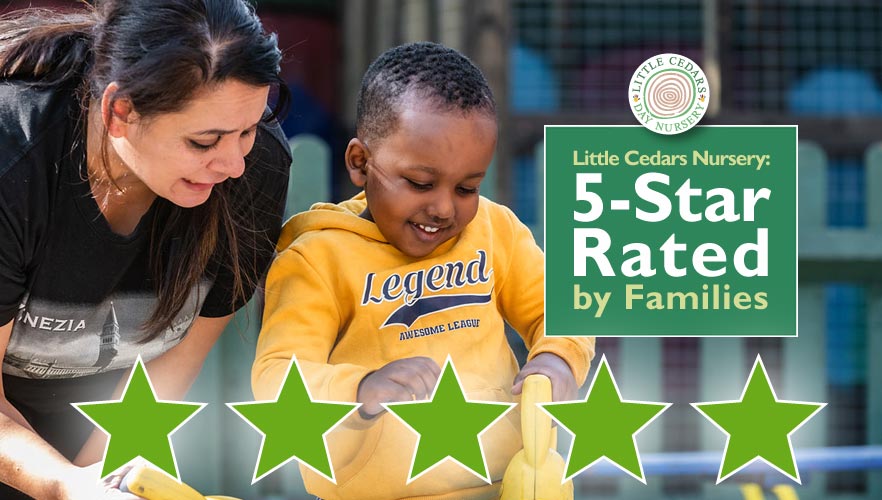
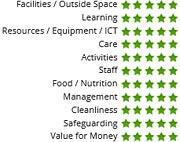 When you’re searching for the best nursery for your baby or toddler, or the perfect preschool for your 3-or-4-year-old, the choice can often be overwhelming.
When you’re searching for the best nursery for your baby or toddler, or the perfect preschool for your 3-or-4-year-old, the choice can often be overwhelming. 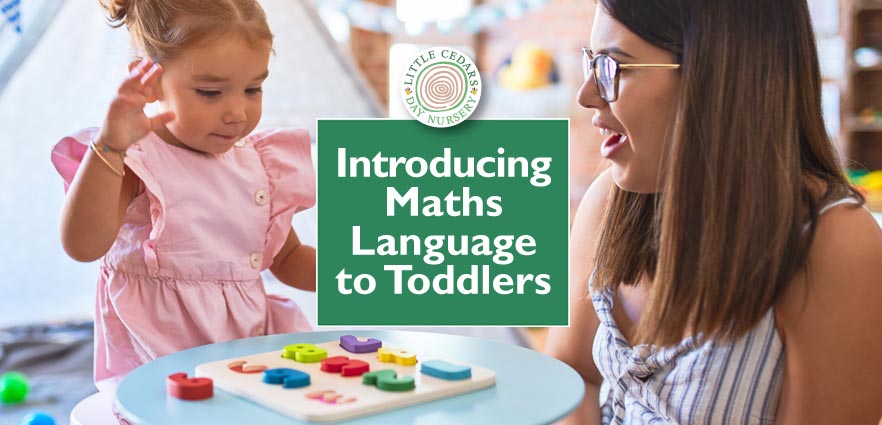
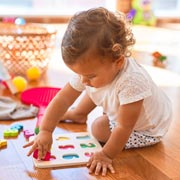 However, many children struggle with maths and have negative attitudes towards the topic. To prevent this, it is important to introduce maths concepts and vocabulary to children at a young age. Fortunately toddlers are at a period of development where they can learn and understand a range of maths words and concepts when given the opportunity. And, by introducing mathematical concepts and vocabulary to toddlers in a fun and engaging way, adults can help children develop a strong foundation in maths and foster a positive attitude towards the subject.
However, many children struggle with maths and have negative attitudes towards the topic. To prevent this, it is important to introduce maths concepts and vocabulary to children at a young age. Fortunately toddlers are at a period of development where they can learn and understand a range of maths words and concepts when given the opportunity. And, by introducing mathematical concepts and vocabulary to toddlers in a fun and engaging way, adults can help children develop a strong foundation in maths and foster a positive attitude towards the subject.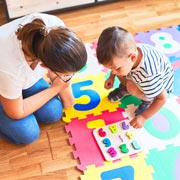 Introducing maths words and language to toddlers is all part of
Introducing maths words and language to toddlers is all part of 
 Parents and caregivers can help toddlers learn maths words and maths-related language in a variety of ways. General examples include:
Parents and caregivers can help toddlers learn maths words and maths-related language in a variety of ways. General examples include: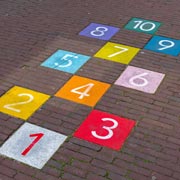 Number Hopscotch
Number Hopscotch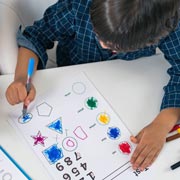 Parents can create simple patterns using objects such as blocks, toys, or coloured pencils, and ask toddlers to continue the pattern. This activity can help toddlers develop their pattern recognition skills and understand basic maths concepts such as repetition and sequencing.
Parents can create simple patterns using objects such as blocks, toys, or coloured pencils, and ask toddlers to continue the pattern. This activity can help toddlers develop their pattern recognition skills and understand basic maths concepts such as repetition and sequencing. Introducing maths words and concepts to toddlers is an important step in fostering their overall learning and development as well as in relation to success in mathematics itself. By teaching toddlers maths vocabulary and concepts at a young age, we can help them develop strong foundations in maths, enhance their cognitive development and language skills, and improve their attitudes towards maths. It is never too early to start introducing maths concepts to children, and by doing so, we can help them develop a lifelong appreciation of maths as well as nurturing a strong foundation for future success in many areas of their lives.
Introducing maths words and concepts to toddlers is an important step in fostering their overall learning and development as well as in relation to success in mathematics itself. By teaching toddlers maths vocabulary and concepts at a young age, we can help them develop strong foundations in maths, enhance their cognitive development and language skills, and improve their attitudes towards maths. It is never too early to start introducing maths concepts to children, and by doing so, we can help them develop a lifelong appreciation of maths as well as nurturing a strong foundation for future success in many areas of their lives.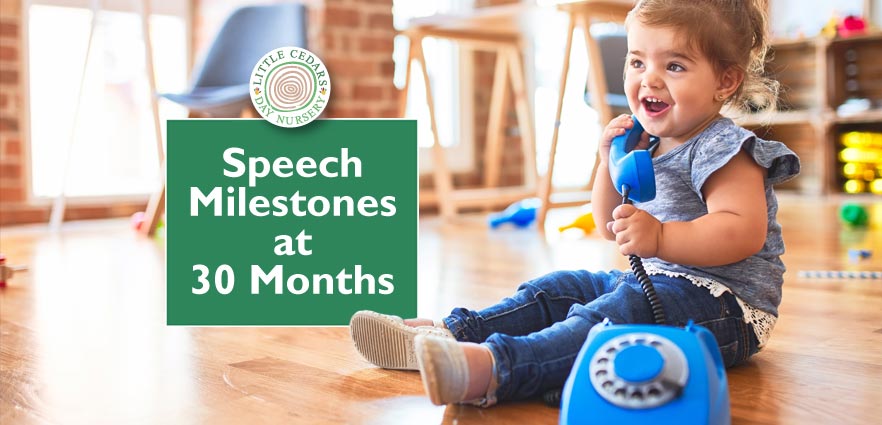
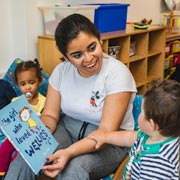 Milestones are a crucial thing to monitor when you’re bringing up a baby or young child. Speech is an important one and it’s one that parents would be wise to take stock of at regular times in their child’s early years. Today we look at this milestone at around the age of 30 months. So, what should you expect your 30-month-old to be able to say at this age and, if appropriate, how can you encourage them to speak more? Let’s explore speech milestones at 30 months…
Milestones are a crucial thing to monitor when you’re bringing up a baby or young child. Speech is an important one and it’s one that parents would be wise to take stock of at regular times in their child’s early years. Today we look at this milestone at around the age of 30 months. So, what should you expect your 30-month-old to be able to say at this age and, if appropriate, how can you encourage them to speak more? Let’s explore speech milestones at 30 months… The more ‘chatty’ time you have with your toddler, the more they will naturally get involved — and learn from you. Talking to your toddler facilitates good listening skills and helps them to build up their own vocabulary, particularly when you make physical reference to the things you are talking about. In this way they can associate a word with its physical equivalent (e.g. holding up or pointing to an object that you’re talking about).
The more ‘chatty’ time you have with your toddler, the more they will naturally get involved — and learn from you. Talking to your toddler facilitates good listening skills and helps them to build up their own vocabulary, particularly when you make physical reference to the things you are talking about. In this way they can associate a word with its physical equivalent (e.g. holding up or pointing to an object that you’re talking about).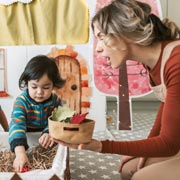 Use repetition. This helps your toddler through hearing the same words over and over again. They will copy and get used to which words go with which scenario in this way. You can take this a step further too…
Use repetition. This helps your toddler through hearing the same words over and over again. They will copy and get used to which words go with which scenario in this way. You can take this a step further too… The same applies to books. Get your toddler to point out details in pictures sand repeat the words after you. You can also ask your toddler questions about the book and get a conversation going, for example, whether they know a particular character, a particular object or a colour. Point to details and see if they know the word, or say the word out loud and let them repeat it.
The same applies to books. Get your toddler to point out details in pictures sand repeat the words after you. You can also ask your toddler questions about the book and get a conversation going, for example, whether they know a particular character, a particular object or a colour. Point to details and see if they know the word, or say the word out loud and let them repeat it.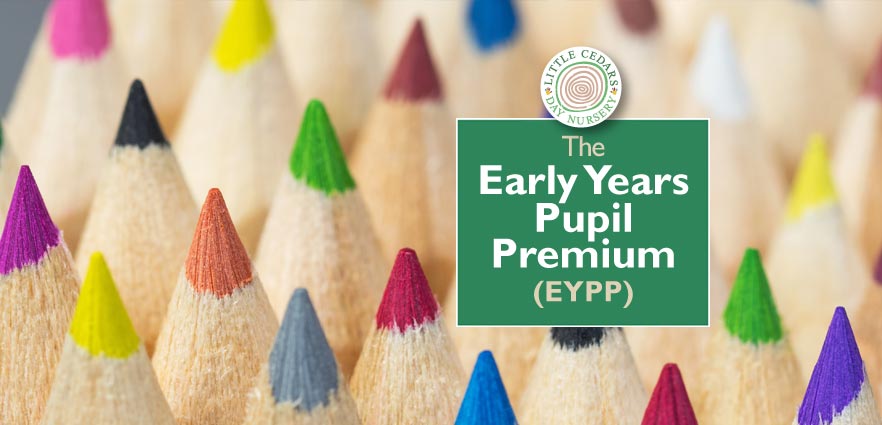
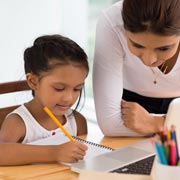 Improving Education for Disadvantaged 3- & 4-Year-Olds
Improving Education for Disadvantaged 3- & 4-Year-Olds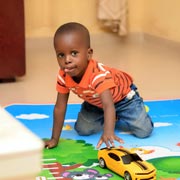 To be eligible for the EYPP funding, a child must meet certain criteria:
To be eligible for the EYPP funding, a child must meet certain criteria: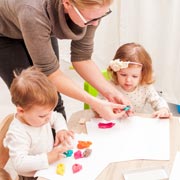 After checking eligibility, interested families or guardians can either
After checking eligibility, interested families or guardians can either 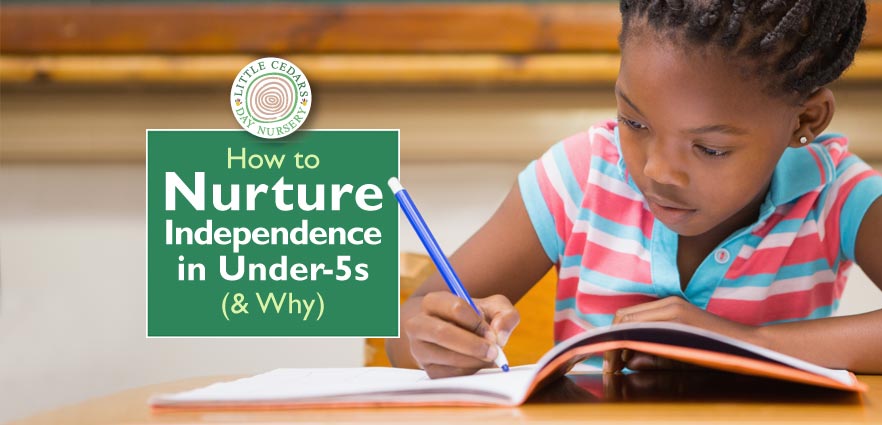
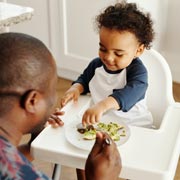 It’s easier and often quicker for adults to take the lead in getting toddlers and under-five children dressed, fed, washed and suchlike. However, at some point, our little ones have to become confident and self-sufficient at doing these – and many other things – themselves. After all, they won’t have Mum or Dad around when they’re starting at school. So, today, we look at the ways we can help children under five help themselves and become more independent, including in their learning. First, though, let’s look at the many benefits of encouraging their independence.
It’s easier and often quicker for adults to take the lead in getting toddlers and under-five children dressed, fed, washed and suchlike. However, at some point, our little ones have to become confident and self-sufficient at doing these – and many other things – themselves. After all, they won’t have Mum or Dad around when they’re starting at school. So, today, we look at the ways we can help children under five help themselves and become more independent, including in their learning. First, though, let’s look at the many benefits of encouraging their independence. Increased self-esteem: Children feel a sense of accomplishment when they are able to do things on their own. This can give a healthy boost to their self-esteem.
Increased self-esteem: Children feel a sense of accomplishment when they are able to do things on their own. This can give a healthy boost to their self-esteem.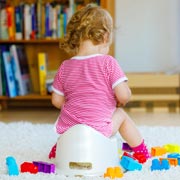 Better self-management skills: Children who are used to taking care of themselves and making their own decisions are better able to manage their own learning and behaviour. This is important, particularly once they move on to a school setting. Studies published in the Journal of Educational Psychology have highlighted better grades and higher levels of achievement in this regard.
Better self-management skills: Children who are used to taking care of themselves and making their own decisions are better able to manage their own learning and behaviour. This is important, particularly once they move on to a school setting. Studies published in the Journal of Educational Psychology have highlighted better grades and higher levels of achievement in this regard. A greater sense of responsibility: Children who are able to do things independently may more easily learn to take responsibility for their own actions and decisions. Learning from one’s own mistakes is also one of life’s most important lessons.
A greater sense of responsibility: Children who are able to do things independently may more easily learn to take responsibility for their own actions and decisions. Learning from one’s own mistakes is also one of life’s most important lessons.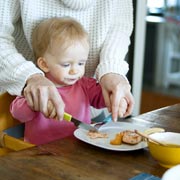 Encourage self-care skills: Help children learn how to dress themselves,
Encourage self-care skills: Help children learn how to dress themselves,  Provide opportunities for children to make their own decisions: Give children small choices and let them choose what they want to do. This helps them feel a sense of control, encourages independence and builds confidence. A good example is allowing them to choose what they want to wear.
Provide opportunities for children to make their own decisions: Give children small choices and let them choose what they want to do. This helps them feel a sense of control, encourages independence and builds confidence. A good example is allowing them to choose what they want to wear.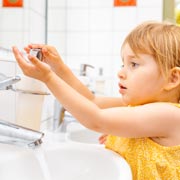 Set realistic expectations: Children are still developing their skills and abilities, so be realistic about what they can do independently.
Set realistic expectations: Children are still developing their skills and abilities, so be realistic about what they can do independently.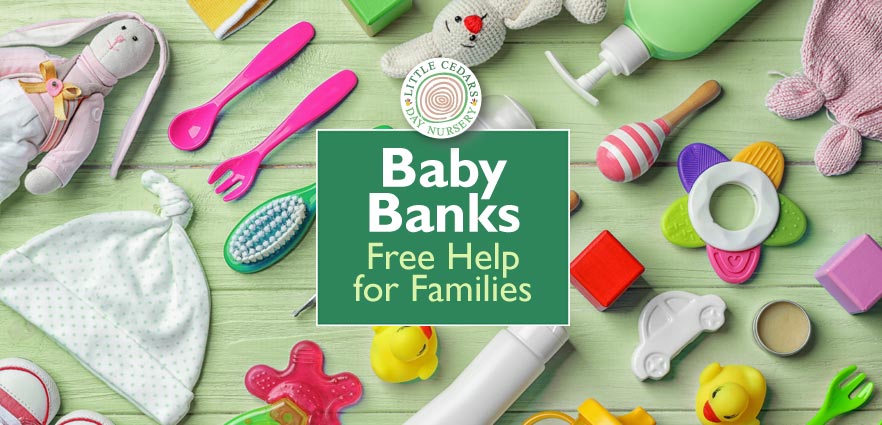
 Today’s post will appeal to families who are finding the current financial climate particularly challenging. With energy costs and inflation so high, the following may represent a welcome piece of good news. Today we highlight the many Baby Banks that are popping up all around the UK and explain how they can help struggling families, all for free.
Today’s post will appeal to families who are finding the current financial climate particularly challenging. With energy costs and inflation so high, the following may represent a welcome piece of good news. Today we highlight the many Baby Banks that are popping up all around the UK and explain how they can help struggling families, all for free. A Baby bank is a similar concept to a food bank. However, instead of food and drink, it provides second-hand clothing, toys and equipment for babies, under-fives and often even for children up to the age of 16 in some cases. Baby Banks can also be compared to a charity shop, however, with baby banks, everything is free.
A Baby bank is a similar concept to a food bank. However, instead of food and drink, it provides second-hand clothing, toys and equipment for babies, under-fives and often even for children up to the age of 16 in some cases. Baby Banks can also be compared to a charity shop, however, with baby banks, everything is free. Baby Banks are run by all sorts of different people and organisations and therefore the rules around actually getting ones hands on the free items vary from Baby Bank to Baby Bank. Some accept requests for items directly from families themselves. Others only deal via a referral from some kind of professional. Examples include social workers, family support agencies, teachers, family centres, health visitors, medical professionals, food banks and women’s refuges. So, once you have located your nearest Baby Bank, you will need to check whether they will deal with you directly or only through such a referral. Either way, you will usually need to agree a time and date for collection of your item with the Baby Bank (you can’t usually just turn up, although there are exceptions). Not all Baby Banks are open all week and that’s another reason to check with Baby Banks or their websites first.
Baby Banks are run by all sorts of different people and organisations and therefore the rules around actually getting ones hands on the free items vary from Baby Bank to Baby Bank. Some accept requests for items directly from families themselves. Others only deal via a referral from some kind of professional. Examples include social workers, family support agencies, teachers, family centres, health visitors, medical professionals, food banks and women’s refuges. So, once you have located your nearest Baby Bank, you will need to check whether they will deal with you directly or only through such a referral. Either way, you will usually need to agree a time and date for collection of your item with the Baby Bank (you can’t usually just turn up, although there are exceptions). Not all Baby Banks are open all week and that’s another reason to check with Baby Banks or their websites first. Absolutely! Baby Banks rely on the generous donations from families that no long require their baby clothes or equipment. Perhaps the child has grown out of them and the items are still in good condition, or perhaps they were an unwanted gift. Donating items is also a great way to declutter and to make space in the home, as well as helping others. However, before donating to a Baby Bank, always check with them to see if all your proposed items are required and, as before, ensure you know whether an appointment is needed or whether you can just turn up with your items. Certain rules may also apply around the condition and type of items (this varies depending upon which Baby Bank you are dealing with). Baby car seats and electronic items may also have special rules due to the extra safety considerations.
Absolutely! Baby Banks rely on the generous donations from families that no long require their baby clothes or equipment. Perhaps the child has grown out of them and the items are still in good condition, or perhaps they were an unwanted gift. Donating items is also a great way to declutter and to make space in the home, as well as helping others. However, before donating to a Baby Bank, always check with them to see if all your proposed items are required and, as before, ensure you know whether an appointment is needed or whether you can just turn up with your items. Certain rules may also apply around the condition and type of items (this varies depending upon which Baby Bank you are dealing with). Baby car seats and electronic items may also have special rules due to the extra safety considerations.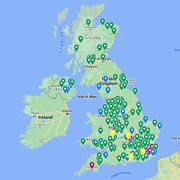
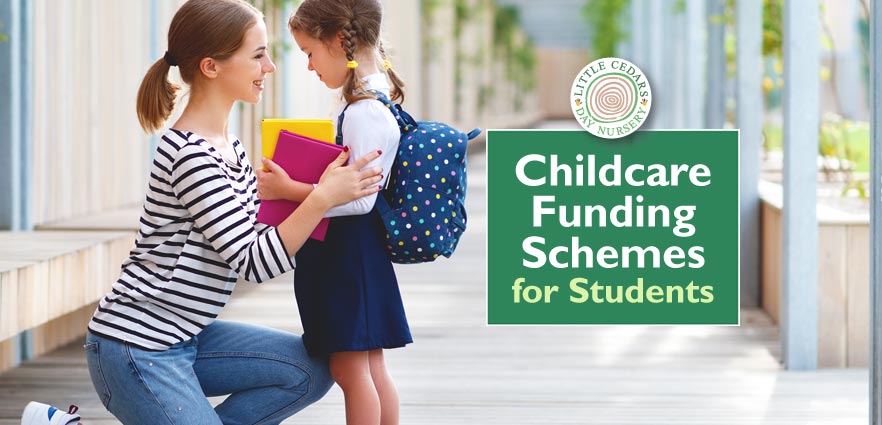
 Are you a student as well as a parent? If so, there are several Government schemes that offer help with childcare costs, some of which will save student parents substantial amounts of money. By doing so, they also make the prospect of juggling parenthood with being a student much more manageable. Today we examine the key childcare funding options, including how the type of course and the age of the parent affect eligibility.
Are you a student as well as a parent? If so, there are several Government schemes that offer help with childcare costs, some of which will save student parents substantial amounts of money. By doing so, they also make the prospect of juggling parenthood with being a student much more manageable. Today we examine the key childcare funding options, including how the type of course and the age of the parent affect eligibility. The very generous Student Childcare Grant is available for eligible students who who are studying full-time on a higher education course and have dependent children aged 14 or under (16 or under if they have special needs).
The very generous Student Childcare Grant is available for eligible students who who are studying full-time on a higher education course and have dependent children aged 14 or under (16 or under if they have special needs). If you are aged 20 or over, are a parent studying in further education for a qualification on a Level 3 course or below and are facing financial hardship, you may be eligible for childcare funding under the Learner Support scheme. This funding could help you with childcare and other study-related costs if you fit the right eligibility criteria.
If you are aged 20 or over, are a parent studying in further education for a qualification on a Level 3 course or below and are facing financial hardship, you may be eligible for childcare funding under the Learner Support scheme. This funding could help you with childcare and other study-related costs if you fit the right eligibility criteria. If you are a parent as well as a student aged under 20 when you begin one of a range of publicly-funded courses in England, you may be eligible for childcare funding through the Care to Learn bursary scheme. If eligible, you could claim as much as £175 in childcare per week, per child if you live in London, reducing to £160 per week, per child, outside London.
If you are a parent as well as a student aged under 20 when you begin one of a range of publicly-funded courses in England, you may be eligible for childcare funding through the Care to Learn bursary scheme. If eligible, you could claim as much as £175 in childcare per week, per child if you live in London, reducing to £160 per week, per child, outside London.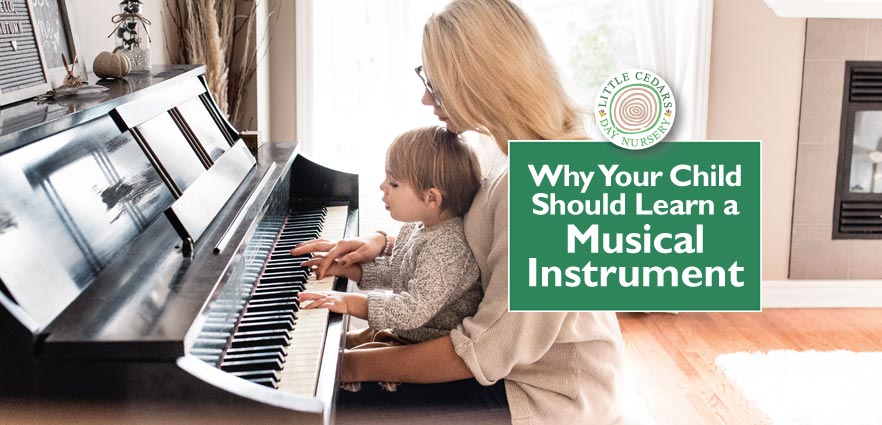
 Both children and adults have a natural affinity with music. It’s one of life’s simple pleasures that just about everyone seems to enjoy in one way or another. Children will naturally start to move, dance, join in or even learn songs that they hear — such reactions seem instinctive to them. Learning to play a musical instrument is therefore a natural next step for them. Indeed, it’s one that parents, guardians and carers should consider encouraging, particularly given how beneficial such an endeavour will be to their child. Learning to play a musical instrument is not simply fun; it profoundly benefits children’s learning and development. With that in mind, we take a look today at the incredible array of benefits that learning a musical instrument poses for children, including under-fives.
Both children and adults have a natural affinity with music. It’s one of life’s simple pleasures that just about everyone seems to enjoy in one way or another. Children will naturally start to move, dance, join in or even learn songs that they hear — such reactions seem instinctive to them. Learning to play a musical instrument is therefore a natural next step for them. Indeed, it’s one that parents, guardians and carers should consider encouraging, particularly given how beneficial such an endeavour will be to their child. Learning to play a musical instrument is not simply fun; it profoundly benefits children’s learning and development. With that in mind, we take a look today at the incredible array of benefits that learning a musical instrument poses for children, including under-fives.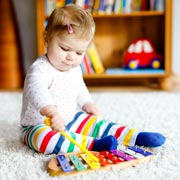 Studies have also shown that learning an instrument or learning how to read music develops the left side of the brain. This area is responsible for processing language and reasoning. Hand-eye coordination skills are also aided when learning to play a musical instrument and reading music. As children’s playing and reading become more advanced, it requires the brain to work at a range of speeds, which is also great exercise for the brain.
Studies have also shown that learning an instrument or learning how to read music develops the left side of the brain. This area is responsible for processing language and reasoning. Hand-eye coordination skills are also aided when learning to play a musical instrument and reading music. As children’s playing and reading become more advanced, it requires the brain to work at a range of speeds, which is also great exercise for the brain. Music gives children a really flexible way of expressing themselves. For instance, the way they choose to bang on a drum, shake a tambourine or strum a guitar can allow them to show happiness, anger, frustration, calmness and many other emotions. Playing a musical instrument gives them a real freedom of expression, even at a very young age. Then, if they reach a point where they are able to make up their own melodies and arrangements, music can become an almost immeasurably powerful tool for self-expression and communication.
Music gives children a really flexible way of expressing themselves. For instance, the way they choose to bang on a drum, shake a tambourine or strum a guitar can allow them to show happiness, anger, frustration, calmness and many other emotions. Playing a musical instrument gives them a real freedom of expression, even at a very young age. Then, if they reach a point where they are able to make up their own melodies and arrangements, music can become an almost immeasurably powerful tool for self-expression and communication.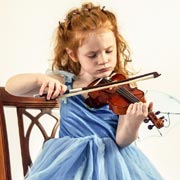 Although playing an instrument is creative, music and maths are very much intertwined. Beats, rhythms and scales are all based on maths and children naturally need to work out some maths in order to understand the song and any sheet music. This will naturally help them to better grasp mathematics and illustrate a real-world example of how it underlies many things.
Although playing an instrument is creative, music and maths are very much intertwined. Beats, rhythms and scales are all based on maths and children naturally need to work out some maths in order to understand the song and any sheet music. This will naturally help them to better grasp mathematics and illustrate a real-world example of how it underlies many things.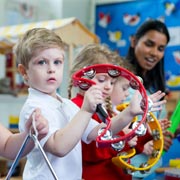 Whether your child is listening to a tutor, teacher, friend or relative, listening skills are very important. Music is a natural way to encourage listening and that’s even more true when children learn to play music themselves. Doing so in their early years will help them to follow instructions, listen out for smaller details as well as the bigger picture. Working together on a piece of music is also a fantastic way to hone group listening skills and teamwork and to encourage collaboration.
Whether your child is listening to a tutor, teacher, friend or relative, listening skills are very important. Music is a natural way to encourage listening and that’s even more true when children learn to play music themselves. Doing so in their early years will help them to follow instructions, listen out for smaller details as well as the bigger picture. Working together on a piece of music is also a fantastic way to hone group listening skills and teamwork and to encourage collaboration.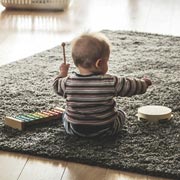 Indeed, music helps to support all 7 focus areas of
Indeed, music helps to support all 7 focus areas of  When children master a song, no matter how basic, they get an enormous sense of achievement and even more so if they are praised by adults and peers. Such praise also encourages the child to progress further, of course. Boosting self-esteem and self-confidence in their early years is important for their future wellbeing too. Achieving something through learning, patience and practising regularly also teaches them that persistence and effort will help them overcome challenges. That’s a very important lesson in life.
When children master a song, no matter how basic, they get an enormous sense of achievement and even more so if they are praised by adults and peers. Such praise also encourages the child to progress further, of course. Boosting self-esteem and self-confidence in their early years is important for their future wellbeing too. Achieving something through learning, patience and practising regularly also teaches them that persistence and effort will help them overcome challenges. That’s a very important lesson in life.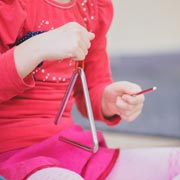 Little ones can first practise keeping in time to music or a beat that an adult is demonstrating, perhaps. Maracas are also good starter instruments although, again, anything that makes a shaking sound can be made at home at zero cost. For instance using an empty carton or plastic container securely sealed with dried rice, pasta or lentils inside. Once they get the hang of such percussive or shaker-style instruments, you can consider transitioning them to more advanced instruments like recorders, ocarinas, keyboards, stringed instruments and so on. Often, children will be more than willing to give such instruments a try and some encouragement and guidance from knowledgeable adults or older children will always be helpful. And, who knows, they could end up being maestros and even stars in the making!
Little ones can first practise keeping in time to music or a beat that an adult is demonstrating, perhaps. Maracas are also good starter instruments although, again, anything that makes a shaking sound can be made at home at zero cost. For instance using an empty carton or plastic container securely sealed with dried rice, pasta or lentils inside. Once they get the hang of such percussive or shaker-style instruments, you can consider transitioning them to more advanced instruments like recorders, ocarinas, keyboards, stringed instruments and so on. Often, children will be more than willing to give such instruments a try and some encouragement and guidance from knowledgeable adults or older children will always be helpful. And, who knows, they could end up being maestros and even stars in the making!